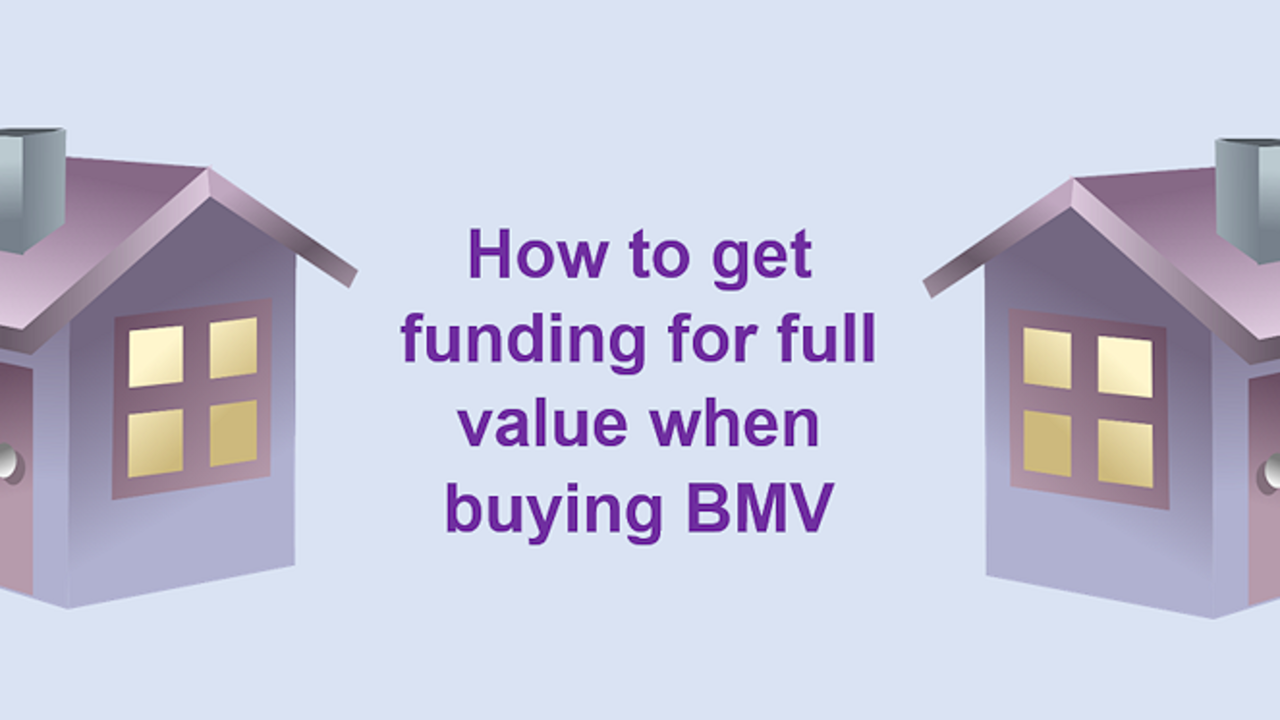How to get funding for full value when buying BMV

THE QUESTION
Here’s a scenario:
- Purchase at 150K
- Exchange and then carry out works expected to bring valuation to 185K
- Keeping a strong and detailed record of all the building works, when the valuer comes and tells you (hopefully) it’s worth the full 185K
How does the lender feel when they know you only paid 150K?
Also how does the vendor get their 150K, is that just a paper exercise through solicitors?
Do you need to have a lender ready to go and do they want to know about the works you are carrying out prior to agreeing the loan?
THE ANSWER
It is possible to achieve your objective of needing little or no deposit, but you have to be very specific in how you set it up. I have arranged the finance for exactly this with a number of clients. I have also taught this exact strategy on my workshops for the past four years.
Doing the exchange with delayed completion is relatively simple, the vendor has to buy into the concept and give you both the keys and permission to enter the property at point of exchange. You need a competent solicitor that is experienced in navigating this kind of deal, so choose on ability not price.
The problem that most who attempt this strategy stumble on is mortgage lenders’ immovable rule that they will always lend on the LOWER of the purchase price of value when buying a property.
Specifically they will have no objection to you having done work to increase the value prior to purchase, just that they will completely ignore the value you have created and lend based on the purchase price only.
Mortgage lenders only consider lending on anything other than the purchase price i.e. a higher value when they are asked to refinance a property purchased previously.
So you have to buy it first and then refinance it. The simplest way is to buy with cash, but that level of ready cash is a pretty exclusive club.
Another way is to use bridging finance to purchase then refinance to a mortgage, but even that falls down because the majority of bridgers have exactly the same rule as mortgage lenders, LOWER of purchase price or value.
I work closely with no more than two bridgers who, knowing I am mentoring the borrower, will ignore the purchase price and lend against the post refurb value the borrower aims to create. Then you refinance with a mortgage lender to repay the bridger.
Given that you are paying £150k and only achieving an increase to £185k, that is not a big enough margin for you to require no deposit but it will reduce it. With a likely bridge of 70% of £185k that would give you £129,500. The bridger would also take set up fees and monthly interest payment out of that.
How does the vendor get their £150k? From their solicitor, with a combination of the loan plus your cash to make up the balance of £150k. They receive the purchase price just like any other property purchase.
You can learn more here:
- Contact Kevin Wright over on his Facebook page.
- Browse the Recycle Your Cash online training library by clicking here.
- Attend an upcoming 1-Day Property Finance Masterclass event - Book in here.






